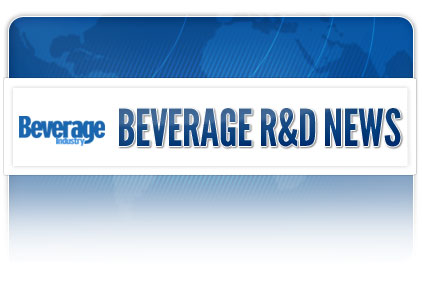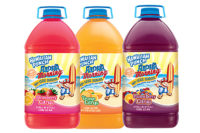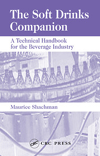Taste, value key motivators for consumers, report finds
Sweetener360 reveals consumer attitudes and behaviors across food and beverage categories

When it comes to food and beverages, nothing tops taste, according to a study released by the Corn Refiners Association (CRA), Washington, D.C. Completed in part by market research firms Nielsen, New York, and Mintel, Chicago, Sweetener360 examines the thoughts and actions of six distinct consumer lifestyle segments, the association says.
Consumers were asked a number of questions about their food and beverage purchase and consumption behaviors, including: What are the top motivators for buying specific foods and beverages?; do consumers who say they actively pursue a healthy lifestyle and avoid total sugars still buy sweetened products at the same rate as other segments?; and are consumers avoiding specific sweeteners, total sugars or calories?
The study found that while more than half of consumers saythey are actively pursuing a healthy lifestyle and avoiding sugars, it doesn’t translate to their purchase decisions. Specifically, 90 percent of consumers say they are motivated to purchase a food or beverage because it is “good tasting,” 82 percent say they would do so because it is a “good value for the price,” 80 percent say they are motivated by “a price I can afford, and 79 percent say they are influenced if it’s “something I know my kids will like.”
“People can say all day long which ingredients they want or don’t, but it isn’t proving out at the checkout,” said Marty Concannon, founder and managing director of Alexandria, Va.-based Lafayette Associates, in a statement. “In the end, taste and price matter more. Businesses need to recognize this before investing in expensive formulation and marketing efforts based on the changing winds of consumer sentiment alone.”
To view an infographic about what consumers say versus do, click here.
Additionally, the study revealed six distinct lifestyle segments based on social factors such as income, nutritional goals, and attitudes toward sweeteners. Shopping habits for these segments were then tracked and analyzed across 15 high-volume food and beverage categories, including carbonated soft drinks, bread and yogurt. Further, the study found that regardless of whether or not consumers in each segment identify themselves as taste-driven, budget-constrained, time-strapped or health conscious, all of the six segments buy sweetened food and beverage products in numbers reflective of their proportion of the total population.
To view an infographic about consumer segmentation, click here.
“Sweetener360 reinforces again that despite what they say, all consumers from the junk food junkie to the self-proclaimed health nut continue to buy sweetened food and beverages,” said Sara Martens, consumer research expert and vice president of Omaha, Neb.-based MSR Group, in a statement. “All consumer segments will continue to eat sweetened products. What varies is how much each segment is proactively managing total sugar consumption across their entire diet of food and beverage choices.”
With regard to avoidance of specific sweeteners, total sugars or calories, the study found that 67 percent of consumers agree that in order to live a healthy lifestyle, moderation is more important than sweetening ingredients.
Conducted in 2013, the 30-question survey was designed to expand on and benchmark previous sweetener research studies conducted since 2010, the association says. Consistent with prior studies, the Sweetener360 survey found that 75 percent of consumers say they regularly or occasionally read the nutritional information or list of ingredients on food and beverage labels and packages, it adds. Among label readers, four times as many consumers say they read nutrition labels to avoid total sugars rather than specific ingredients such as high-fructose corn syrup (HFCS).
Looking for a reprint of this article?
From high-res PDFs to custom plaques, order your copy today!






